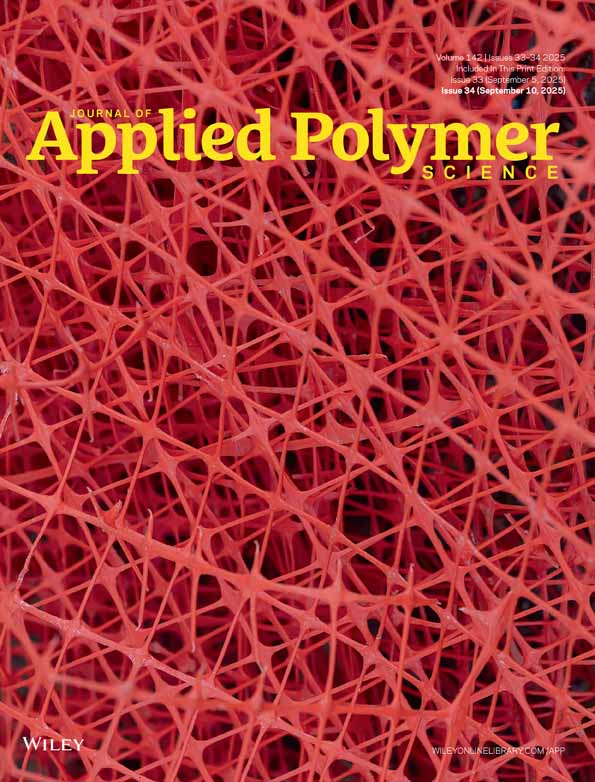The effects of functional azo initiator on PMMA and polyurethane IPN systems. I. Synthesis, characterization, and thermal effects
Abstract
The use of functional azo initiators and the thermal history of the materials have been shown to exert significant effects on the properties of interpenetrating polymer networks (IPNs). The IPNs prepared with a reactive azo initiator from MDI and 1,2-PBD (1,2-polybutadiene diol) with PMMA have been found to exhibit greater ductility, lower rigidity, and lower moduli than IPNs prepared with AIBN. This probably resulted from the attached PMMA blocks modifying the properties of the PU matrix phases. Increasing thermal treatment of IPNs prepared from either the reactive or the normal azo initiators exhibited increased Tg values in both DSC and DMTA scans. These results have been explained by increased association from chemical reactions between the hard segments of the polyurethane and poly(methyl methacrylate) ester groups.




